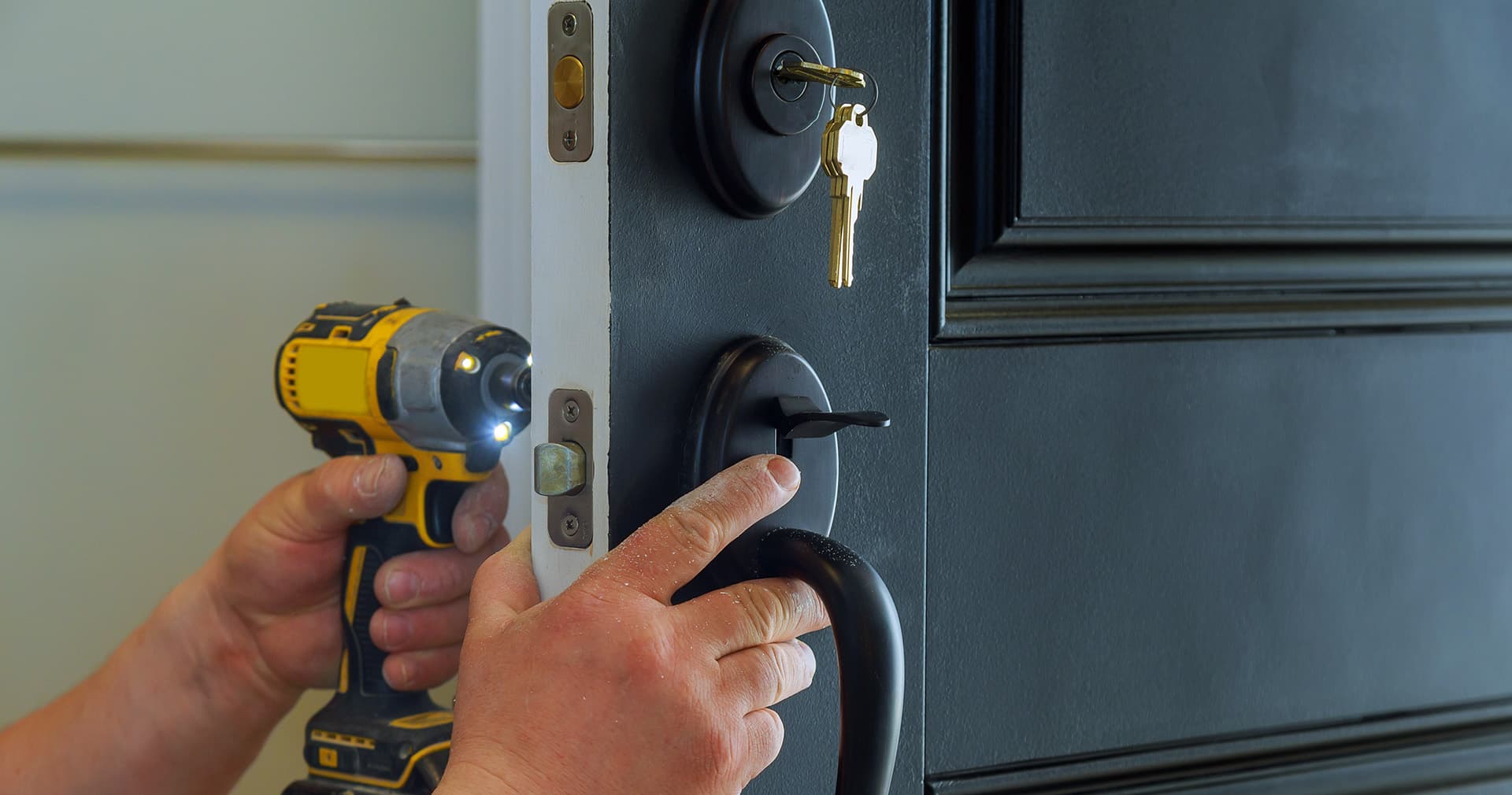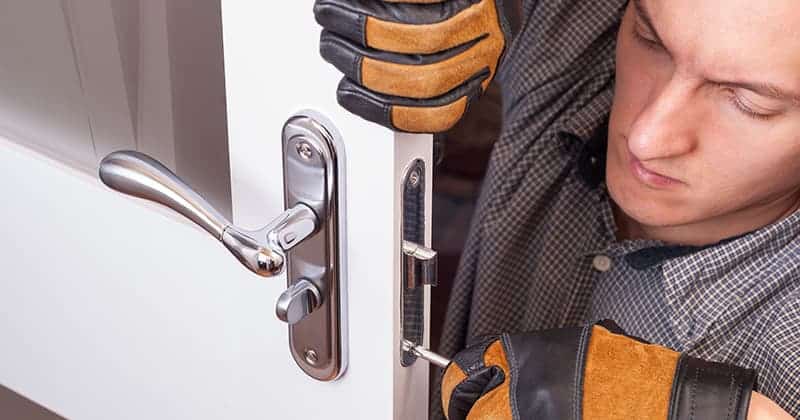
Locksmiths provide essential security services, helping people protect their homes, businesses, and vehicles. But is it a good idea to start a locksmith business? How much do they make? And how can a new locksmith boost their earning potential?
In this article, we’ll answer all your questions about how much these professionals make.
First, we’ll start with average earnings. Then, we’ll look at the financial impact of training and certification. We’ll walk through some specialization options and give you a quick overview of the industry.
Finally, we’ll share a few tips for figuring out how to determine earnings.
Equipped with these insights, you can make an informed decision about becoming a locksmith. Let’s get started.
How Much Locksmiths Make On Average
On average, locksmiths in the US earn about $50,717 per year. This breaks down to roughly $24.38 per hour. But earnings can vary.
When you are just starting as a locksmith, the average starting salary is $41,598 per year. This is what you might expect to earn in your first few years.
As you gain more experience and skills, your earning potential increases. For the most experienced locksmiths, salaries can reach $70,037 annually.
What’s more, where you work significantly affects how much you can make.
For example, locksmiths in California earn a bit more than the national average, with an annual salary of about $66,267. In Alaska, locksmiths earn around $63,703; in New York, they make $62,147.
Some states have much lower salaries for locksmiths. In North Dakota, the average yearly wage is only about $33,280. In Maine, it’s $36,738; in Vermont, locksmiths earn around $37,440.
As you plan your locksmith business, consider these points:
- Starting salaries are lower but increase as you gain skills and experience.
- Location matters a lot. Starting your business in a state with higher average salaries might improve your earnings.
- Experience pays off. Your potential to earn more money grows as you build your reputation and skills.
RELATED ARTICLE: Locksmith Invoice Template + 5 Invoicing Tips & Tricks
The Financial Impact of Locksmith Training and Certificates
Locksmiths are skilled professionals. Training programs and certifications help you learn the techniques to deliver effective, long-lasting services.
They can also make your business more attractive to customers. Certifications are like stamps of approval—they build trust and authority.
More advanced skills and a better reputation could help you earn more. Plus, if you decide to specialize, you might face less competition. This means stronger job security, less pricing pressure, and more business.
So, how do you undertake training and earn certificates? The Associated Locksmiths of America (ALOA) is your first point of call.
The ALOA issues certificates that are recognized industry-wide. Here are some to consider:
Registered Locksmith (RL)
This is your starting point. To become a Registered Locksmith, you must pass a basic locksmith exam. This certification shows that you know the fundamentals.
At this stage, you may earn the starting salary.
Certified Registered Locksmith (CRL)
After you get your RL, you can aim for the Certified Registered Locksmith level. You need to pass two elective exams in addition to a mandatory one.
This title tells your customers that you have a greater depth of knowledge. You could start charging them more.
Certified Professional Locksmith (CPL)
This is the next step up. You must pass an additional 12 elective exams to earn a CPL certification.
This extensive testing proves you have many skills and can handle more complex locksmith work.
Certified Master Locksmith (CML)
This is the highest level for general locksmithing. After getting your CPL, you must pass nine more electives to achieve this.
A CML designation marks you as a top professional in the field. You can charge even more for your services.
Specialty Certifications
You can also become a certified specialist. This might boost your earnings and increase your marketability. Your options include:
- Certified Professional SafeTech (CPS): Start with this if you want to specialize in safes and vaults. Passing this test certifies you to handle basic safe work.
- Certified Master SafeTech (CMST): This is the top certification for working with safes. It requires extra exams beyond the CPS level and prepares you to work on complex safe and vault technologies.
- Certified Automotive Locksmith (CAL): For locksmiths interested in car locks and keys, the CAL certification is the entry-level credential. It demonstrates your ability to handle automotive lock issues.
RELATED ARTICLE: The Essential List of Software Solutions for Running a Locksmith Business

Specialization Within Locksmithing
Let’s examine the different types of specialist locksmiths. Each offers unique opportunities and potentially higher earnings.
Commercial Locksmithing
Commercial locksmiths help businesses secure their buildings. They install and repair locks in commercial properties, like shops, hospitals, and offices.
These locksmiths often deal with advanced security systems. Because the security needs are higher, commercial locksmiths might earn more than those working for homeowners.
Residential Locksmithing
Residential locksmiths secure homes. They install locks, repair, and help people who have locked themselves out.
Automotive Locksmithing
These locksmiths specialize in car locks. They help people locked out of their cars, make new keys, and fix car locks.
Automotive locksmiths can earn more than traditional locksmiths. The average salary is around $88,533 per year.
Safe and Vault Specialist
Safe and vault specialists often work for businesses like banks or hotels.
This job demands a deep understanding of complex locking mechanisms. It might also include working with electronic systems.
Access Control Specialist
These specialists handle electronic security systems that control who can enter a building or room. This role mixes traditional locksmithing with electronic skills.
The average yearly salary is about $56,530 but can reach up to $75,000 for the most experienced technicians.
Tips for Choosing a Specialty
Here are some tips to follow to choose a specialty that meets your needs and goals:
- Consider your interests. Pick a specialty that interests you. You’ll be more motivated to keep learning and improving.
- Research local demand. Look at what services are in high demand in your area. There might be a significant need for automotive locksmiths or, perhaps, for commercial security.
- Get the proper training. Make sure you get the necessary training and certifications for your chosen specialty.

National Outlook of the Locksmithing Industry
Before you start your business, spend some time researching the industry. By doing so, you can set yourself up for long-term success.
Let’s start with what drives demand. The locksmith industry is closely tied to the performance of the construction and housing markets.
Locksmiths play an essential role in both sectors. Businesses, homeowners, property managers, and landlords all rely on locksmiths.
Before the pandemic, locksmiths enjoyed steady demand. This was thanks to the thriving housing market.
However, recent interest rate increases have slowed the housing market’s growth. This has had a small flow-through effect on the locksmith industry.
Despite this, the industry’s value was estimated at $2.6 billion in 2023. The profit margin rose to 6.2%.
What about crucial revenue sources?
Most locksmiths make their money from businesses. That’s one reason locksmiths cluster in highly populated areas like cities. The Mid-Atlantic, West, and Southeast regions have a particularly strong demand for locksmith services.
Higher demand means higher competition. Customers have many more options, leading to intense price competition.
Looking ahead, the market size for the locksmith industry is projected to increase. Two key factors will drive this growth:
- Rising disposable income: As individuals have more disposable income, they are more likely to invest in and upgrade their security systems. This includes purchasing more expensive, higher-tech locks with better security and more features.
- Strong construction markets: A rebound in the construction sector could boost the need for locksmiths.
To take advantage of these opportunities, be ready to adapt. Keep up with market trends and invest in your ongoing professional training.
RELATED ARTICLE: 4 of the Top Locksmith Industry Trends for 2024
First Steps for Determining Your Potential Earnings as a Locksmith
We’ve answered the question, “How much do locksmiths make?” But your earning potential, skills, and area are unique to you.
Here are five steps to take to help you set realistic expectations:
- Check local demand. Look around your community. Are there many people or businesses needing locksmith services? A higher demand means you could earn more.
- Calculate training costs. Find out how much it will cost to get the training and certifications needed to become a locksmith. This is an essential investment for starting your business.
- Study your competitors. See how many other locksmiths are in your area. What services do they offer? What are their prices? This will help you understand your competition.
- Estimate equipment expenses. Figure out what tools and equipment you need to buy to start and run your locksmith business. This includes both basic and specialized tools.
- Think about what interests you. Decide which part of locksmithing you like the most, whether that’s working with homes, businesses, cars, or something else. This choice can affect how much you enjoy your job and how much money you can make.
Related Posts
Stay Informed
Get the latest news and insights plus, Service Fusion offers and updates.Thank you for your submission.
SHARE